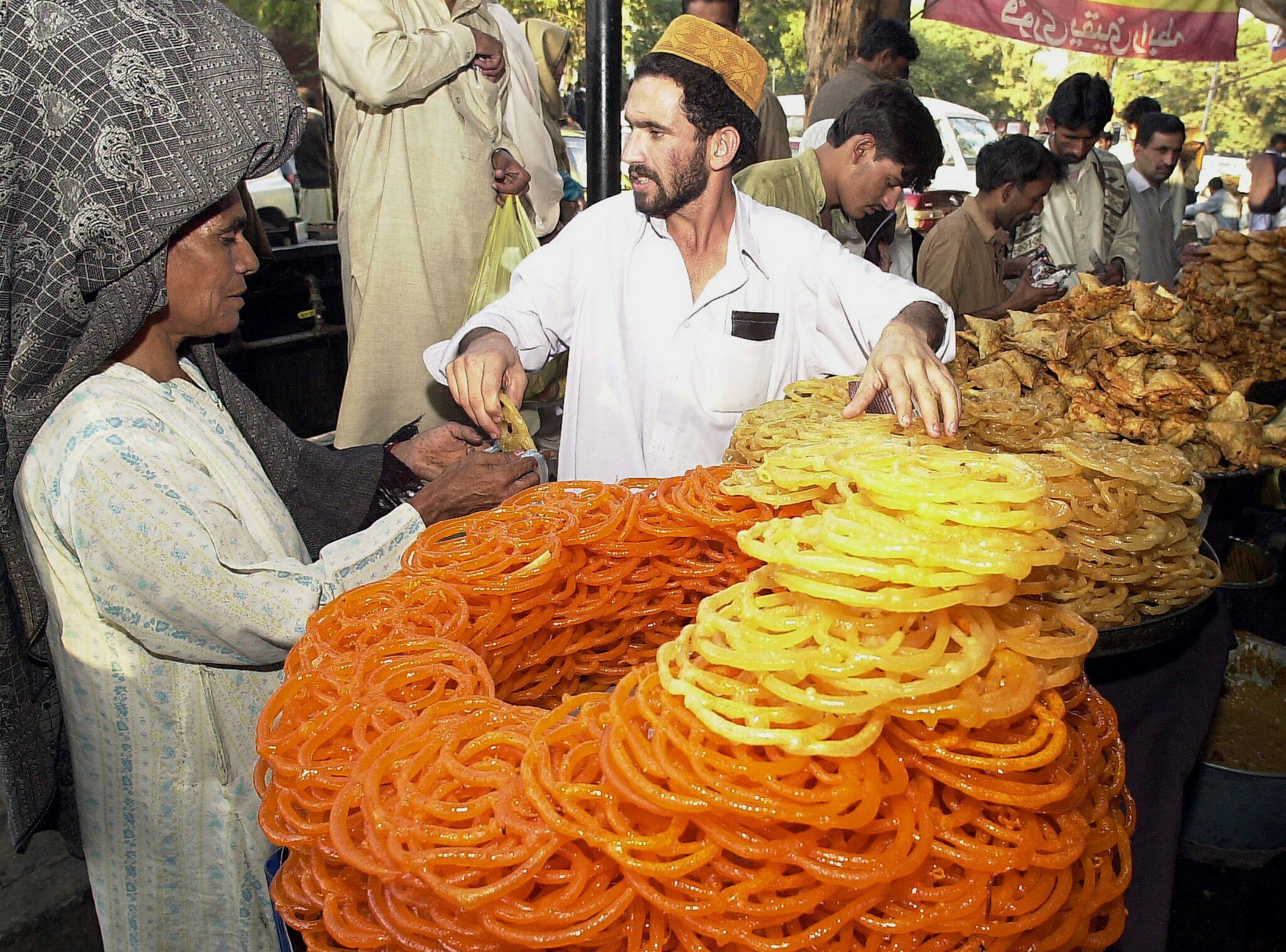The Indian government is poised to roll out health warnings for beloved Indian snacks such as samosas and jalebis to highlight their hidden oil, sugar, and trans-fat content.
The Food Safety and Standards Authority of India (FSSAI) has identified 14 snack items, including popular Indian street snacks like samosas, pakodas (fritters), vada pav (a spiced potato patty sandwiched in a bread roll), and some varieties of biscuits, which will be accompanied by clear cautionary notices in cafeterias and public venues, according to a Times of India report.
While some media reports stated that the food items itself would carry warning labels, the Union health ministry clarified in a statement that their advisory focused on “display of boards” and was aimed as a “behavioural nudge to make people aware about hidden fats and excess sugar in all food products and not specifically to any particular food product”.
The initiative, which has already begun rolling out in cafeterias of state-run facilities like AIIMS Nagpur, comes amid growing concern over India’s escalating lifestyle disease burden.
Health experts, the Indian Council of Medical Research and the National Institute of Nutrition have reportedly backed the initiative, stating that it supports a larger effort to combat India’s growing epidemic of non‑communicable diseases such as diabetes, hypertension and cardiovascular disease.
“It’s the beginning of food labelling becoming as serious as cigarette warnings. Sugar and trans fats are the new tobacco. People deserve to know what they’re eating,” cardiologist Dr Amar Amale, head of the Nagpur chapter of the Cardiological Society of India, told the Times of India.
Dr Rajiv Kovil, head of diabetology at Zandra Healthcare, told IndiaTimes: “These high-calorie snacks contribute to obesity, which is a gateway to numerous chronic conditions”. He added that they also lead to excessive calorie intake with minimal nutritional value, as well as worsen digestive problems, raise the risk of fatty liver and insulin resistance, and contribute to cognitive decline, mood disorders, inflammation, hormonal imbalance, and an overall weakened immune system.
According to the International Diabetes Federation, over 77 million Indians live with type 2 diabetes, or roughly 9 per cent of adults, with diabetes-related complications accounting for nearly 2 per cent of all deaths annually.
A Chennai-based study published in the American Journal of Clinical Nutrition found that individuals consuming high levels of refined grains, like those used in samosas and jalebis, were nearly eight times more likely to develop metabolic syndrome, which includes risk factors such as high blood pressure, insulin resistance, and abdominal obesity.

At the same time, the World Health Organization has flagged trans fats, a common component of Indian street foods, as responsible for over 77,000 cardiovascular deaths each year in India.
However, the move has met with significant criticism from nutritionists who have argued that this campaign unfairly targets traditional Indian foods. Celebrity nutritionist Rujuta Diwekar, who has long championed indigenous food instead of Western alternatives, posted a message on her social media questioning why processed snacks continue to be eaten without warning.
“Tobacco is an independent risk factor. It harms irrespective of environment and lifestyle. There is ample proof of that. Samosa and jalebi ne aap ka kya bigada hai? ( What have samosas and jalebis done to deserve this?) If we are serious about health warnings – colas, chips, cookies etc. must get them first. Regulate and tax big food,” she wrote.
“Ultra-processed food products are the real problem. And there is ample proof of that, too,” Diwekar added in her caption.
Milind Deora, MP, in a post on social media platform X noted that the Parliamentary Subordinate Legislation Committee is currently reviewing food regulator FSSAI’s plans to tackle India’s growing obesity crisis.
“We have unanimously advocated uniform regulations across all food categories, including alcohol, so Indian food isn’t unfairly targeted while MNCs continue to market Western junk unchecked”.
Former parliamentarian Milind Deora also criticised the government’s focus in a post on X, formerly Twitter, urging a level playing field so that “Indian food isn’t unfairly targeted while MNCs continue to market Western junk unchecked”.
Reactions from Indians have been mixed; while some see the warnings as overdue, others have questioned whether the signs will truly change eating habits or serve to stigmatise comfort foods.
“Let’s also have them on packaged foods, processed foods, pizzas, burgers, cold storage meats, chips, soft drinks, etc?” wrote writer Kiran Manral.
“You don’t eat jalebis and samosas for health. You indulge for delight unlike alcohol or cigarettes or pan masala. While former are indulgences (not necessarily healthy), they don’t fit into the same category as products that require health warnings,” wrote a person on X.




